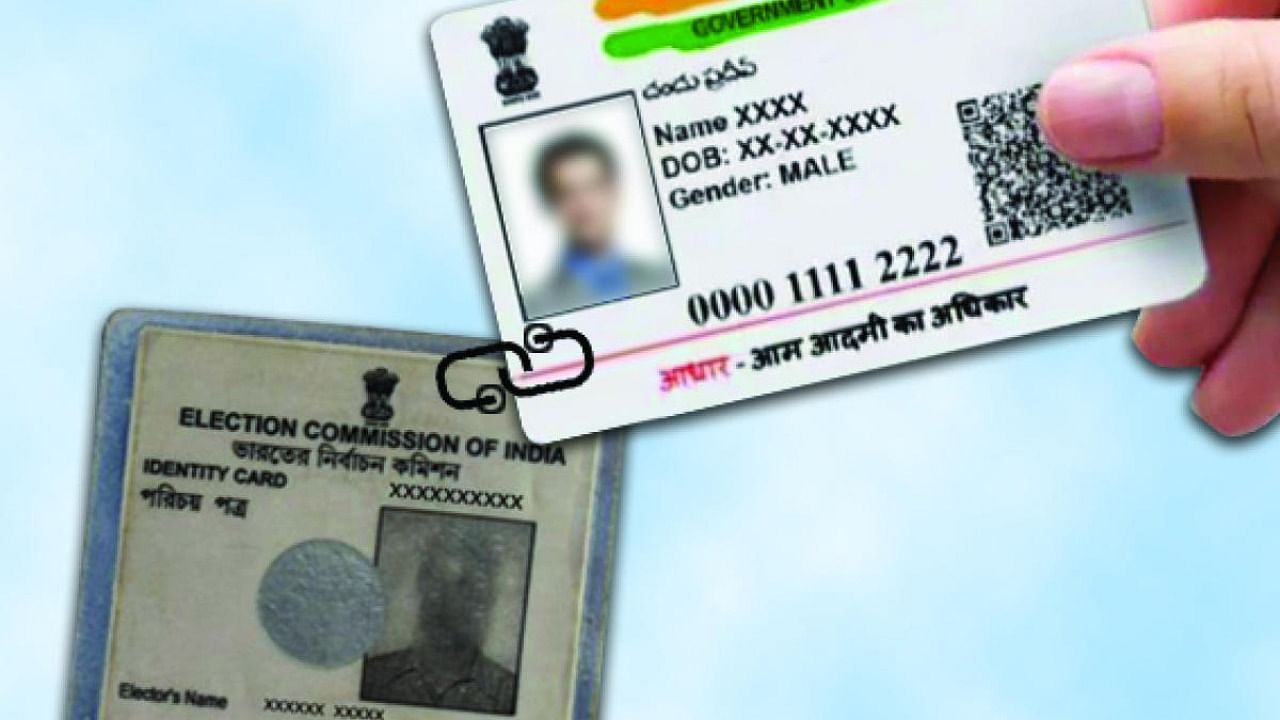
The Election Laws (Amendment) Bill was passed on December 21, amidst protests by the Opposition in both Houses of Parliament. The crux of this new bill is that the Aadhaar, a unique identification system, is to be linked to the electoral rolls as a way to authenticate voters. The opponents of the bill have several suspicions about the bill which need to be addressed.
The government has said that the bill sought to address the Election Commission (EC)’s concern over identifying duplicate voters so as to clean up the rolls, and that the linking is designed to do exactly that.
There are two principal reasons for the proposal to link.
Improved accessibility to voting: With over 300 million migrant workers across the country, the Voter ID-Aadhaar linking will allow the EC to track them and allow them to participate in elections in their home states.
Preventing voter fraud: Since Aadhaar information is linked to biometrics, which cannot be replicated, the EC had contended that voter fraud on the basis of this information would be very difficult. Voter cards linked with biometrics would be difficult to falsify.
The EC had sent the proposal for voter card and Aadhaar linking in August 2019, suggesting that electoral law be amended to allow it to gain access to the Aadhaar records of registered voters and those of first-time voters getting registered. Earlier, in 2015, the EC had launched a pilot programme, the National Electoral Roll Purification and Authentication Programme, to use Aadhaar information to remove duplicate voters from the electoral rolls. The Supreme Court had stayed this action till it adjudicated whether it would violate citizens’ privacy.
In August 2017, a nine-judge bench of the Supreme Court delivered a unanimous verdict in K S Puttaswamy vs Union of India affirming that the Constitution guarantees to each individual a fundamental right to privacy.
Before the SC stay, the EC had already collected and verified the Aadhaar data volunteered by 32 crore voters.
The bill was met with a storm of opposition even at the time of its introduction in the Lok Sabha. Their opposition is based on primarily three grounds:
1) Linking the electoral roll with Aadhaar information could lead to personal information getting leaked. This could lead to targeted electoral campaigns and even disenfranchisement of groups of voters. What was mentioned as a proof of this having already happened was the tracking of millions of voters in Andhra Pradesh and Telangana in 2019, and even the actual deletion of 55 lakh voters from the electoral rolls.
2) The scope of voter fraud remains even with the use of Aadhaar. In 2020, the Unique Identification Authority of India (UIDAI) had admitted that it had had to cancel 40,000 fake Aadhaar cards. Multiple examples exist where Aadhaar has been faked, such as the incident in 2018 in which a Bangladeshi national was arrested at Bengaluru airport with a fake Aadhaar card and other documents that he had procured from an agent in Bengaluru. The voter ID-Aadhaar linking could thus potentially give non-citizens the right to vote, as Shashi Tharoor pointed out during the debate on the bill.
3) Justice B N Srikrishna, who was chairman of the committee that drafted the original Personal Data Protection bill, has said that the voter ID-Aadhaar linking could allow the government to profile voters. Precedent for this exists in Latin America, where authoritarian governments had brought in legislation to use a single form of identification (a national ID), which had actually caused disenfranchisement and a reduction in the number of voters due to marginalised communities failing to procure the ID and thus the vote. India, with its plethora of marginalised communities, could very easily face a similar problem.
The EC has sent a number of electoral reform proposals to the government from time to time that have been languishing. If the reason the bill was rushed through Parliament was truly to purify the electoral rolls and system, then why have the other reforms been left out? Why has the government brushed the fears and apprehensions of the Opposition under the carpet, instead of addressing them and taking them along?
In my view, the fear of voter information leakage is perhaps unfounded as the electoral roll information is already in the public domain in pdf format. The other information is the voting pattern which, in any case, is secret and not linkable to any database or network.
The government has said, in view of the SC judgement on Aadhaar, that the linking is voluntary. How exactly can the voluntary assent of 90 crore voters be taken? Will a door-to-door campaign be conducted? What is the motivation for a voter to give consent to their data to be linked with Aadhaar? What if a majority — or even a small number — refuse the permission? That will not ensure a clean roll, defeating the purpose of the whole exercise. The bill answers none of these questions.
The electoral roll is the foundation of the integrity of the entire election process. No doubts should be allowed to cloud its credibility. Every political party wants clean rolls. They should have been taken into confidence on how it is being attempted. If the government has no mala fide intention or a secret plan, why could it not attempt to take all parties along? By pushing it down the throat of the Opposition, it has itself created suspicion in public minds, as it did in the case of the three farm laws. Why burn your fingers again?
(The writer is a former Chief Election Commissioner of India and the author of ‘An Undocumented Wonder — The Making of the Great Indian Election’).